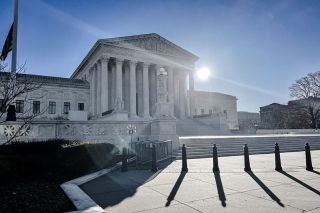Knauss legislative fellowships in Congress help build careers — and they're fun and educational. See our video and fact sheet for details.
Meet the Fellows Bringing Science to National Policy
Where marine and coastal science meets national policy, you’ll find Sea Grant Knauss Fellows. For this year-long fellowship, graduate students from across the US are matched with hosts in the legislative and executive branches of the federal government. They live and work in the Washington, DC, area, bringing their expertise to policy that impacts the oceans, coasts, and Great Lakes. Meet the five fellows Maryland Sea Grant is supporting in 2024.
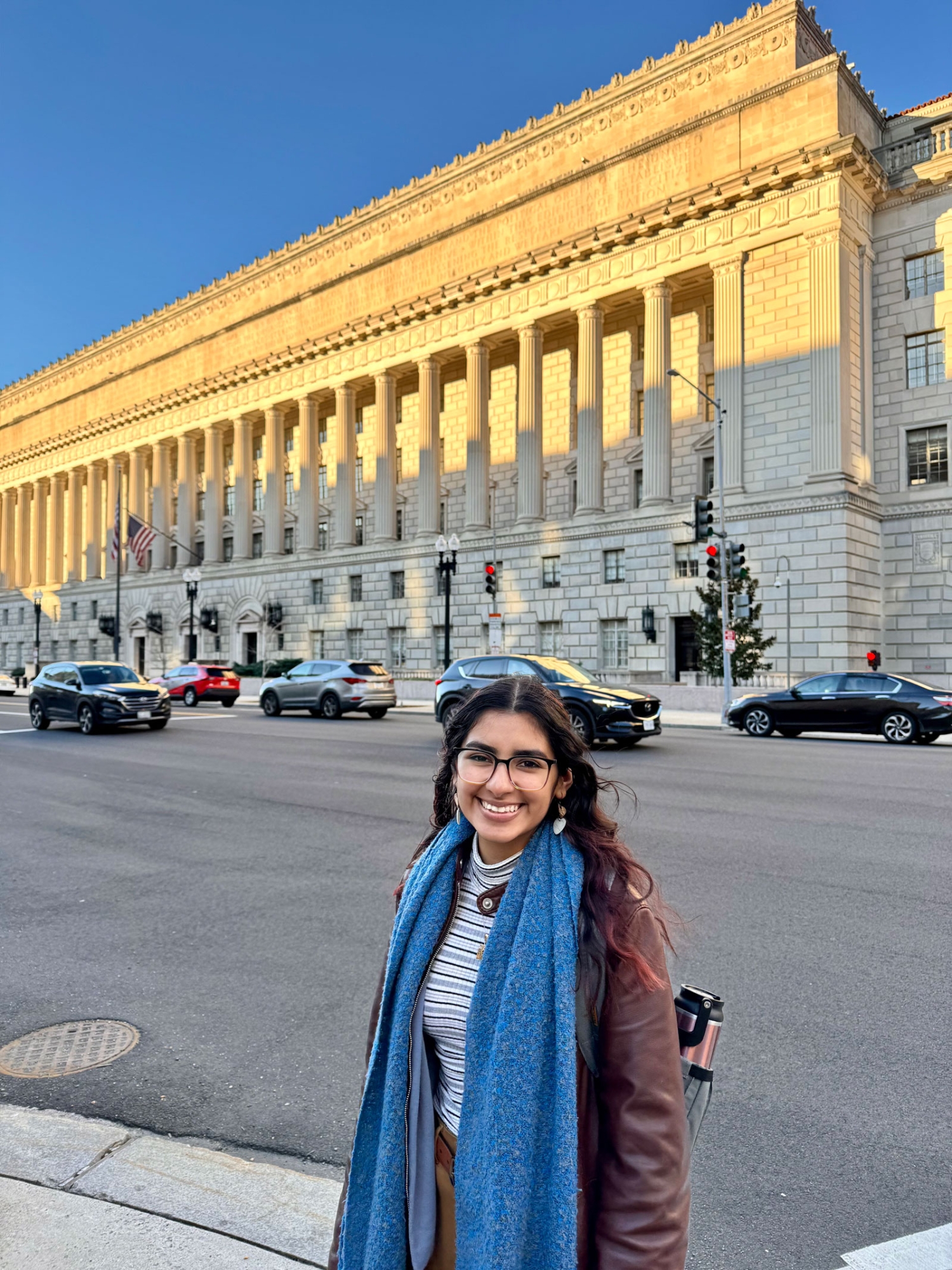
Jessica Diaz is with the Office of the Under Secretary of Commerce for Oceans and Atmosphere and NOAA Administrator. “This means I work at the highest level of the agency, helping track and manage the [about] $6 billion that NOAA received from the 2021 Infrastructure Investment and Jobs Act and the 2022 Inflation Reduction Act,” says Diaz. She liaises between NOAA program offices and leadership, Department of Commerce, and the Executive Office of the President to ensure funded programs meet the goals of the legislation and reports on the progress and impacts of funding.
Diaz describes herself as a scientist by training but says policy has always been a central theme of her work. As an intern with The Wilderness Society, she connected with Tribal organizations and drafted legislation that helped the federal government to address derogatory geographic and federal land unit names. “I brought that experience to my undergraduate research work in limnology and spent several years as a youth climate organizer,” says Diaz.
Diaz earned a master’s degree in marine, estuarine, and environmental science from the University of Maryland, Baltimore County. While completing her thesis on oyster restoration in the Baltimore Harbor, Diaz balanced days of research and lab work with community engagement supporting cleaner and more accessible waterways.
As a Knauss Fellow, she is excited to get an insider’s look at how large sums of money are managed and distributed. “It is amazing to be on the other side and [to] understand what happens behind the scenes between the passage of legislation and on-the-ground action,” she says.
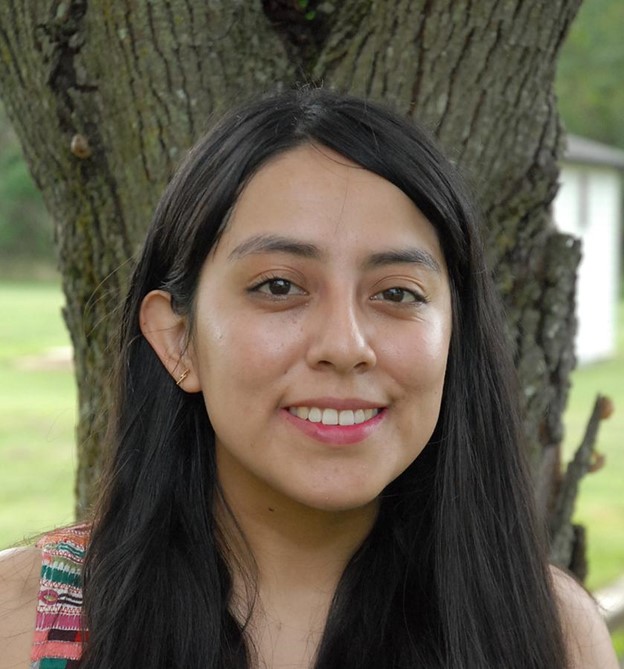
Paulina Huanca-Valenzuela is placed with the public affairs team at NOAA Fisheries—the agency responsible for the science and management of fish, other marine life, and their habitats.
“Before completing my PhD, my education was focused on environmental microbiology, biotechnology, and bioinformatics,” says Huanca-Valenzuela. In January of this year, Huanca-Valenzuela earned her doctorate from the University of Maryland Center for Environmental Science’s Marine Estuarine Environmental Sciences program. In her PhD research, Huanca-Valenzuela studied microbial communities that inhabit particles in the ocean.
Now, as a Knauss Fellow, Huanca-Valenzuela is exploring a different side of science: communication. As a member of the public affairs team, she helps spread the word about NOAA Fisheries’ work. She communicates with reporters, develops messaging, tracks media coverage, and writes press releases. She also works with other NOAA programs and federal agencies to highlight partnerships.
“This has been a completely new experience for me,” says Huanca-Valenzuela. “It has been challenging and motivating to be outside my comfort zone and to network and learn about other career opportunities outside of a laboratory setting.” She says her new communication skills will be a powerful tool for her future career.
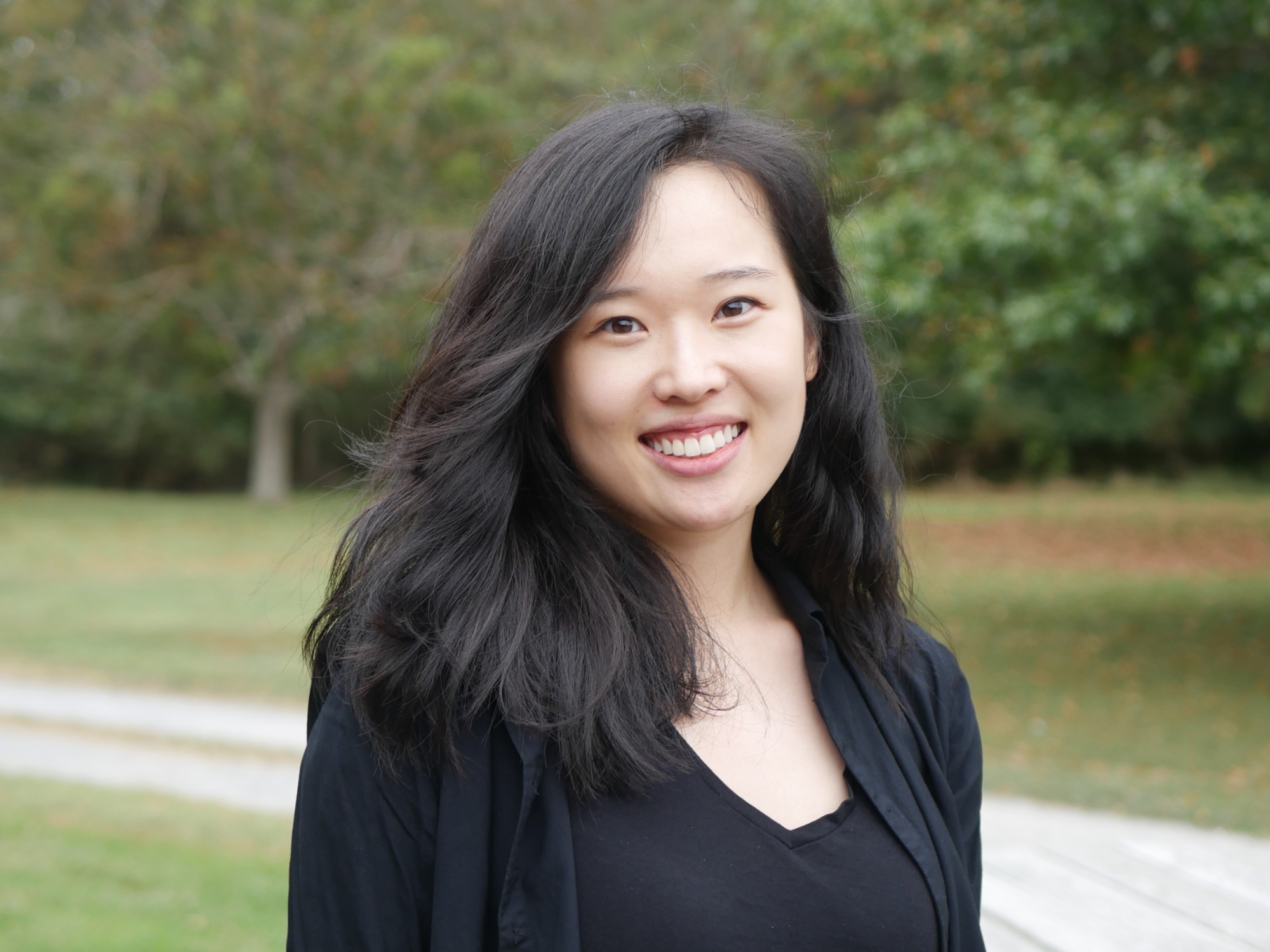
Carol Kim is working with NOAA Ocean Exploration, a program dedicated to exploring the deep ocean and learning more about the US’s deep waters and seafloor. She coordinates efforts and helps build partnerships to shape and advance ocean mapping, exploration, and characterization.
“My background is in microbial ecology,” says Kim, who earned a doctorate from the University of Maryland Center for Environmental Science’s Marine Estuarine Environmental Sciences program. She is excited to explore how science can shape policy and decision-making. “I'm especially excited to gain experience in developing strategic plans, implementing policies, and taking part in ocean exploration expeditions that will help further our understanding of the ocean,” she says.
Kim has already joined a research expedition of deepwater areas around Puerto Rico. “I got the opportunity to help deploy the remotely operated vehicle, assist in collecting and processing biological samples, and document in situ data of coral, sponge, and fish communities,” she says.
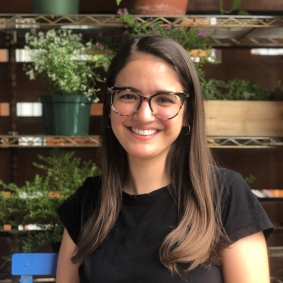
Aliya Mejias is matched with NOAA’s Climate Adaptation Partnerships (CAP) Program. The program brings researchers, nonprofit organizations, and state, local, and Tribal governments together to help communities build lasting and equitable climate resilience.
Mejias completed her graduate degree in landscape architecture and her interests center around livability, or the factors that support a community’s quality of life. “Livability, to me, also means a place that supports a high quality of ecology—it’s holistic,” says Mejias. “Climate change directly impacts livability on all scales and in all dimensions—and it’s tricky because it needs both bold, transformative, and courageous federal policy and action that is grounded in place-based, local context and knowledge. And it has to be done equitably.”
Mejias hopes to build more bridges between federal policy and local knowledge. She is also interested in how land-use policy impacts climate adaptation. “My thesis was a small exercise in this. It explored what our urban public space would look like and how it would benefit a community if it prioritized people, sustainable transportation, and green infrastructure over cars,” she explains.
This year, Mejias looks forward to creating new partnerships and connecting with CAP’s regional teams to learn more about the methods they use to help communities build climate resilience and work toward transformative adaptation.
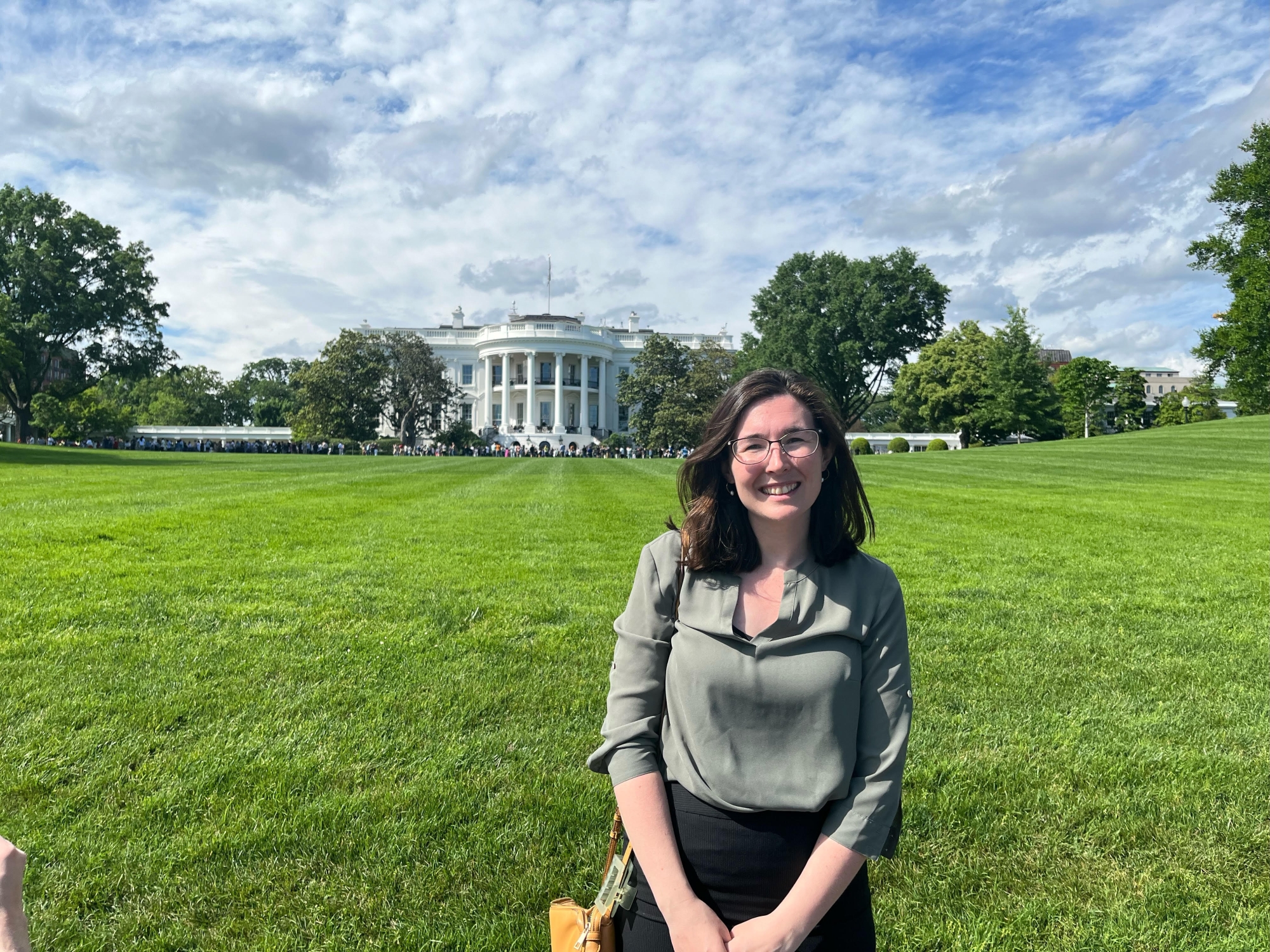
Cassandra Worthington is working with the climate and wildlife policy teams of the Senate Environment and Public Works (EPW) Committee. She helps review legislation that comes to the committee, draft letters to agencies, and organize hearings.
“As a Knauss Fellow, every day is a new adventure,” says Worthington. In her first week, she helped with the introduction of the American Conservation Enhancement Reauthorization Act, which the US Senate subsequently passed by unanimous consent and the US House is currently contemplating. She has also supported hearings on advancements in air sensor technology and the US Fish and Wildlife Service’s budget. “I would have never had these learning opportunities if it weren’t for the Knauss Fellowship,” says Worthington. “It is a genuine privilege to work for Chairman Carper and the EPW team.”
Worthington has a master’s degree from the University of Maryland’s School of Public Policy, where she worked on projects with the Global Environment Facility and the White House Council on Environmental Quality. Before graduate school, she taught high school science in Hawaii with Teach for America.
Are you interested in becoming a Sea Grant Knauss Fellow? Find more information about the application process on our Information for Knauss Applicants page.
Top left photo by Sea Grant / Amara Davis
See all posts from the On the Bay blog
